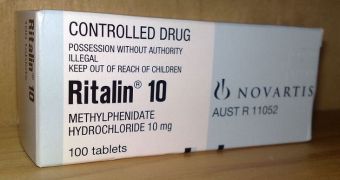Investigators with the University of Pennsylvania School of Medicine established in a new study that children taking drugs which address attention deficit hyperactivity disorder (ADHD) are not at a higher risk of developing adverse cardiovascular events.
According to the research team, the correlation holds true for both kids and teens. However, it's worth mentioning from the start that this study was funded by a manufacturer of ADHD medication.
Details of the research appear in the latest issue of the peer-reviewed journal Pediatrics and this represents the first time researchers conducted an analysis into this type of correlation. A large sample of teens and kids was used for the work.
In the experiments, UP experts compared the risk of adverse cardiovascular events that ADHD drug users had, as opposed to people of the same age and socioeconomic background, that were not using this type of medication.
“These data provide reassurance that the thing most concerning – death – is not any higher in users of ADHD medications than non-users” explains Sean Hennessy, PharmD, PhD. The expert was the senior author of the research paper.
“For kids who will benefit from ADHD treatment, the potential risk of a cardiovascular event should not dissuade parents or caregivers from giving a child or adolescent these drugs,” he goes on to say.
Such studies are very important because official statistics indicate a number of at least 2.7 million children as ADHD medication users. This means that 4.8 percent of all children ages 4-17 are on the stuff. These numbers cover the year 2007.
In previous works, some researchers had drawn attention to the fact that some ADHD drugs may increase children's risk of sudden death, heart attack, or stroke, PsychCentral reports. But this proposed correlation was never tested in a large-scale study before.
In the new study, experts tracked the evolution of more than 241,400 patients for 135 days. This is the average time span for ADHD medication. All participants were aged between 3 and 17.
“The fact that the rates of cardiovascular events that could be identified were very low is of interest because at least we can tell that we do not have an epidemic of such events in kids receiving ADHD drugs,” Hennessy explains.
“If ADHD medications were causing an epidemic of cardiovascular events, we would expect to see it in this study.” the UP research team writes in its new report.
The US Food and Drug Administration (FDA) and the Agency for Healthcare Research and Quality (AHRQ) have already been investigating the potential cardiovascular risks of ADHD medications on children since 2007.
“Until the results of the FDA study become public, this study should provide reassurance to parents and caregivers that ADHD drugs are safe from a cardiovascular perspective,” Hennessy concludes.

 14 DAY TRIAL //
14 DAY TRIAL //